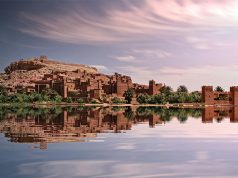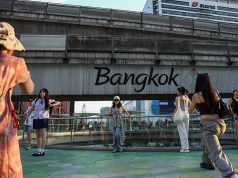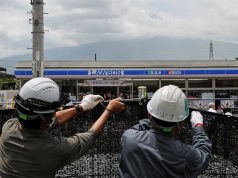
MANILA – When European Chamber of Commerce of the Philippines president Guenter Taus first arrived in the 1980s, he was drawn to the beaches and the seas, where he would frequently go scuba diving.
He became active in the Anilao community in Batangas, where cyanide fishing, dynamite fishing, and muro ami were still commonplace.
With peers who were concerned that this was destroying the bay, he began bringing in visitors from other countries to enjoy the marine biodiversity.
The fishermen started renting out their boats to take scuba divers out to sea for P2,000 or P3,000 a day, and the destructive fishing practices gave way to a flourishing tourism industry.
Resorts opened, the locals were able to feed their families, and today, Anilao is known also as a destination for excellent macro photography opportunities.
Having been in the Philippines for 30 years, Taus had seen how European businesses looked at the country as a “tourism haven”.
“The Philippines is probably second to none in Asia when it comes to natural resources, may that be the mountains up north or the beaches down south,” he said recently in a press conference to promote the EU-Philippines Business Summit, held Tuesday at Solaire Resort and Casino in Parañaque City.
He himself operates two resorts in Mindoro, where practically “a whole village” is employed “in the middle of nowhere”.
“The easiest way to bring the Philippines out of poverty is tourism,” Taus said.
He pointed out how, after operating his business for over 10 years, he had seen the village thrive through the jobs he was able to create.
“You have all the ingredients here in order to be extremely successful in tourism, and yet, it’s a potential that has never been really tapped. And I’ve been saying the same thing for the last 30 years. I don’t understand why this is the lowest hanging fruit that you have not picked,” Taus lamented.
For the industry to flourish, though, the government must build roads, decentralize airports, open the skies to other carriers to fly directly to tourist destinations, ensure the safety of visitors, and allow “bigger groups” to lease property for long periods of time so it will be “viable for them to put up hundreds of millions of dollars to build resorts,” he said.
Taus noted that the government is already working on some of these recommendations.
“The natural beauty that you have in the Philippines is something you don’t have to pay for. It’s here. So utilize it … The ability of everyone to speak English and to smile and to be hospitable is a naturally given talent to every Filipino, so utilize it,” he said.
“Look at Boracay. Slowly we’ve marketed the destination to death. So I don’t understand why government is not pushing more for other destinations because there are better beaches in the Philippines than Boracay, but they have never been developed,” he added.
In his speech at the EU-Philippines Business Summit, Taus was glad to note “the ongoing discussion in Congress seeking to ease restrictions on foreign participation in construction activities, which currently hinders potential economic growth in the country,” as well as “the government’s plans to reduce the paid in capital requirement for the entry of foreign retailers, which will encourage foreign investment in the retail sector.”
A recent article by the Philippine Star quoted Socioeconomic Planning Secretary Ernesto Pernia as saying the government plans to lower the foreign capital limit from the current $2.5 million to $200,000.
“Under the law, foreigners may only fully own retail enterprises with a minimum paid-up capital of $2.5 million. Those with paid-up capital less than this amount are reserved for Filipino ownership,” the Philippine Star reported.
The competition this will foster will benefit “every ordinary Filipino,” Taus said.
“What has happened before? You want H&M, you go to Hong Kong, you go to Singapore, you go, you bring your money out of the country. Doesn’t it make more sense to bring those companies to the Philippines so it enables Filipinos to spend their money in the Philippines, therefore you, A. have employment, you have taxes that are being paid? So that makes a lot more sense to me. Rather than to say, fine, we restrict everyone from coming in. Because at the end of the day, what you want for the average Filipino is better prices, better services, and make sure that it’s affordable and available,” he reasoned.
The reduced paid-up capital would not only entice European small and medium enterprises, according to Taus, but would “send the right signals worldwide… The Philippines is open for business.”
“And let’s face reality, the more ASEAN integration we see, the more competition we have here in the Philippines, and the more we have to market ourselves abroad that the Philippines is your country of choice. Not Vietnam, not Indonesia, not Myanmar. That becomes increasingly more difficult if you have restrictions,” he said.
He continued, “And since the ASEAN region will get closer and closer and closer, and the tariff barriers fall, it really wouldn’t matter for a European company to set up in Vietnam, manufacture or produce in Vietnam, and send their goods to the Philippines tax- and duty-free because it’s within ASEAN. So that’s one of the facts government has to consider in the long term perspective.”









